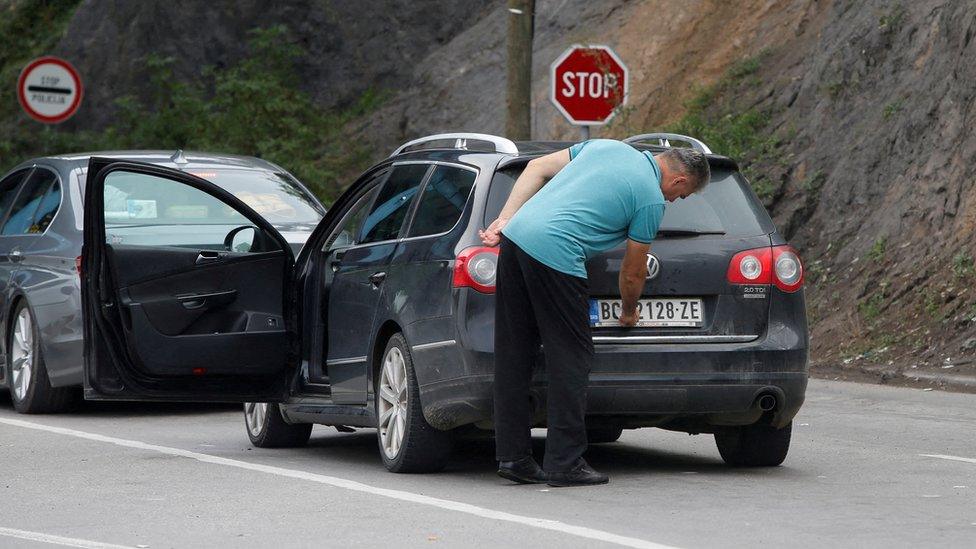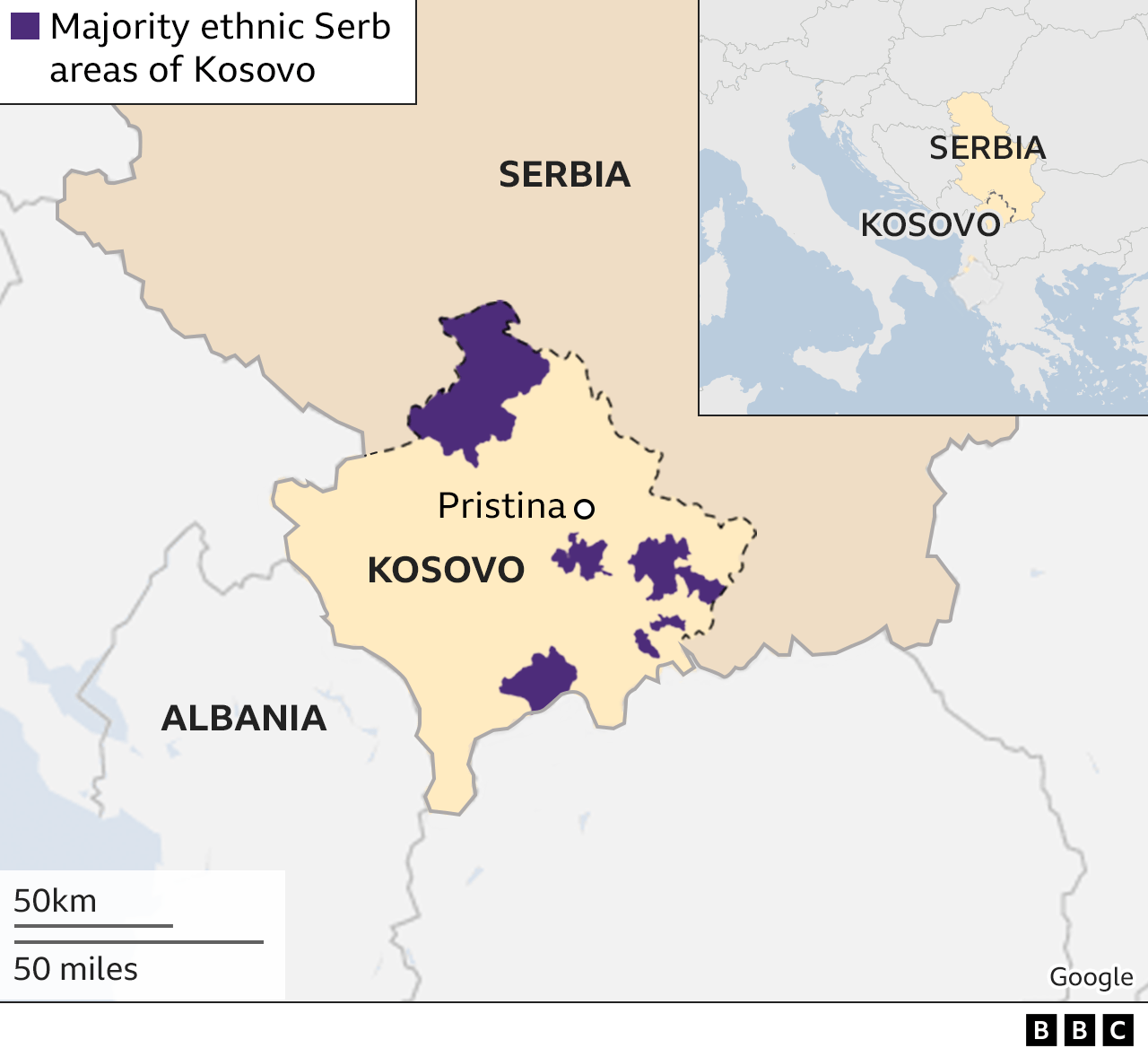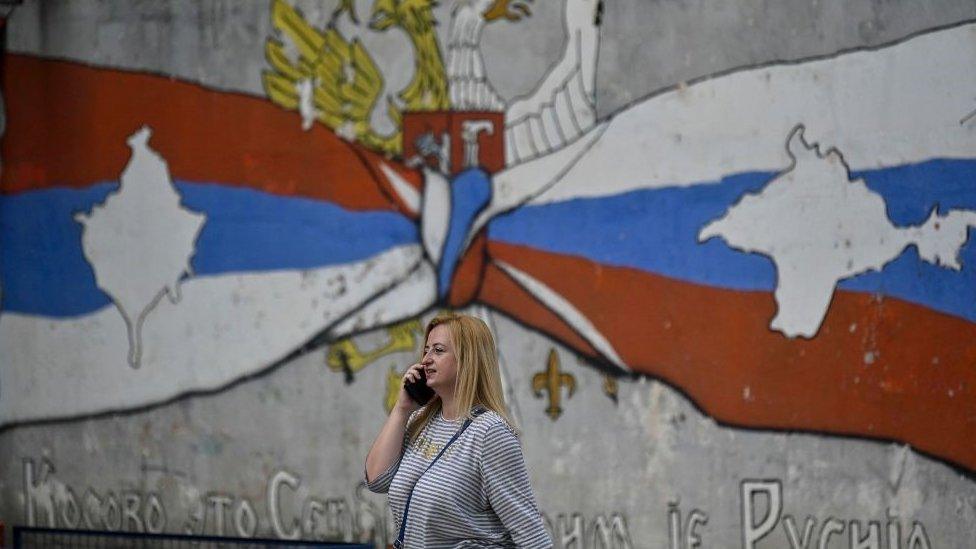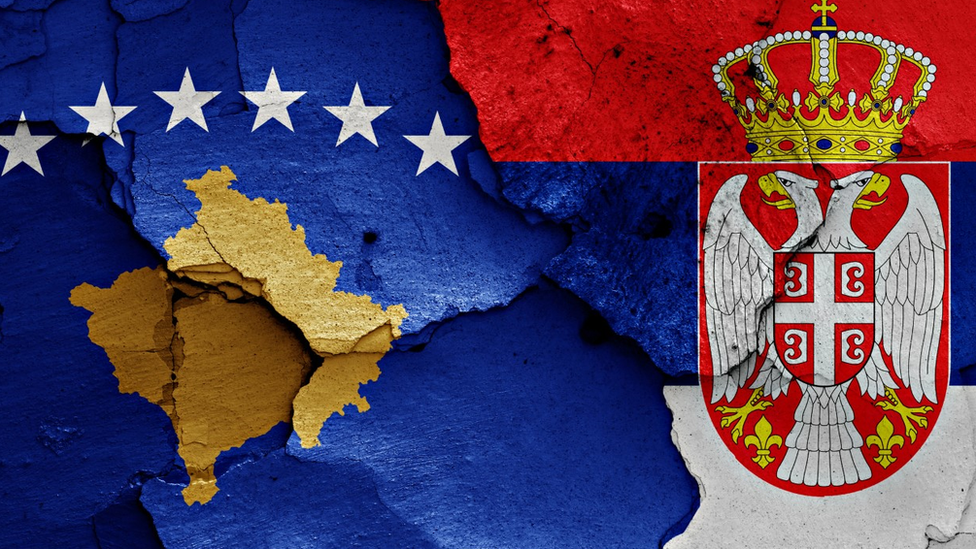Kosovo-Serbia flare-up fears over car number plate row
- Published

Kosovo police plan to fine residents who use Serbian number plates
The EU and Serbia have warned that violence could erupt in Kosovo after EU-mediated talks failed to resolve a dispute over Serbian car number plates.
Kosovo authorities want the ethnic Serb minority to surrender their Serbian-issued plates. Serbia does not recognise Kosovo's independence.
Hours before Kosovo's Tuesday deadline, Prime Minister Albin Kurti agreed to delay issuing fines for 48 hours.
He said he was "happy to work with the US and the EU to find a solution".
Kosovo police were due to impose fines of €150 (£130; $154) to holders of Serbian-issued plates from 07:00 on Tuesday.
The government in Pristina argues that licence plates predating the territory's 1999 war for independence from Serbia can no longer be valid. It says the 50,000 Serbs in northern Kosovo, who only accept local Serb institutions, must now use Kosovo plates.
Ethnic Serb police officers resigned en masse earlier this month in protest at Pristina's ruling.
EU foreign policy chief Josep Borrell said many hours of talks had failed to resolve the long-running dispute: "I think that there is an important responsibility on the sides of both leaders for the failure of the talks today and for any escalation and violence that might occur."
Serbia's President Aleksandar Vucic said the situation was "on the verge of conflict". He has warned of "hell on the ground" if Kosovo's special police try to enforce the fines.
Mr Vucic had earlier held talks in Brussels on the dispute with Kosovo Prime Minister Albin Kurti, who blamed the EU for the talks' failure.
The EU foreign policy chief said Kosovo's leader had rejected an EU compromise proposal, though Serbia had accepted it. Mr Vucic said Serbia would stop issuing and renewing its own car number plates for the Serbs in northern Kosovo.
US state department spokesman Ned Price said both sides "will need to make concessions to ensure that we do not jeopardise decades of hard-won peace in an already fragile region".
In a post on social media in the early hours of Tuesday, Mr Kurti said he had accepted a US request for a 48-hour postponement of the fines.
About 3,700 Nato peacekeeping troops remain deployed in Kosovo - the KFor force - to prevent any flare-up in the former Serbian province. Nato chief Jens Stoltenberg tweeted: "Now is the time for responsibility and pragmatic solutions. Escalation must be avoided."


Related topics
- Published1 November 2022

- Published27 August 2022

- Published2 October 2023
